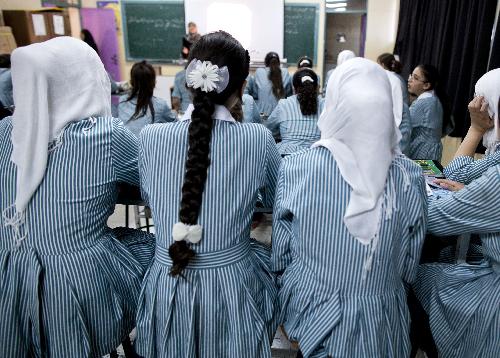The European Union and UNICEF will support Libya to enhance teachers’ competences, status and motivation and ultimately to develop a more effective teaching system: the agreement is part of a two-year project funded by the European Union and implemented by UNICEF to improve access to quality education for all children in Libya, with a special focus on the most vulnerable children, including those affected by the conflict and those that are internally displaced.
One component of this €3.1 million project is to study the various aspects of the Libyan teaching system such as teachers’ qualifications, in-service teacher training, recruitment, management and deployment.
The purpose is to accrue a complete and objective analysis of teachers' performance, education and prospects for professional development. The analysis will inform a high-level road map for more effective teachers’ management and help coordinate a response to teacher development.
“Enhancing the quality of education is of vital importance, and it is enshrined in the European Neighborhood Policy which puts a strong focus on promotion of deep and sustainable democracy, accompanied by inclusive economic development,” says Suzanne Kodsi, Head of Cooperation at the EU Delegation to Libya.
“We believe that the high number of teachers available in Libya can be a driving force to increase the quality of the education, but this will happen only if they are highly motivated, appropriately trained and supported,” added Carel de Rooy, UNICEF Libya Country Director. “This is the ultimate goal of the Teachers Development Center programme: rethinking the teaching system in order to enhance teachers‟ competencies, status and motivation leading ultimately to better learning in Libya’s classrooms.”
(Source: EU Neighbourhood Information Centre)





